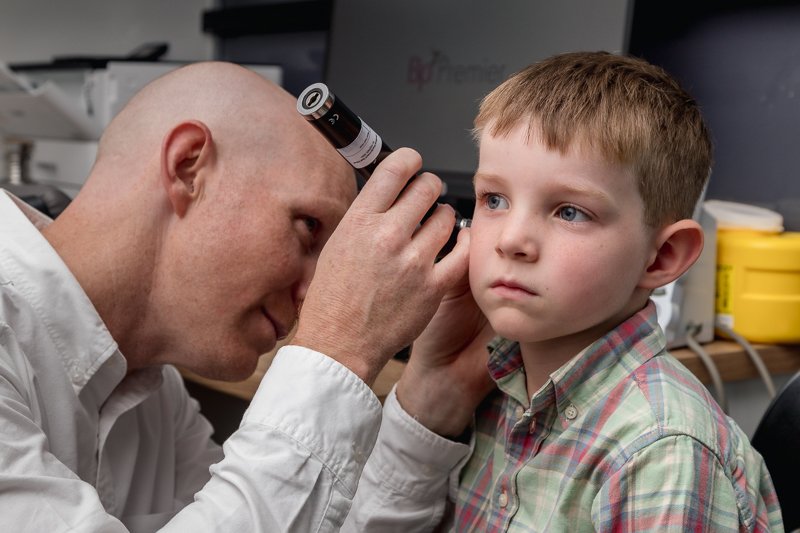Breastfeeding: Your Questions Answered
Is breastfeeding good for babies?
Absolutely. Breastmilk is amazing. It’s a complete food that contains all the nutrition your baby needs for their first 6 months of life. It also strengthens your baby against infection and disease and supports their brain development.
The composition of breastmilk changes depending on what your baby needs. It varies throughout the day, it changes if your baby is premature or sick and it changes as they grow.
Breastfeeding supplies more than just nutrition though. Your baby receives a powerful infusion of health-giving microbes from your breast milk. It contains many compounds that play a significant role in your baby’s health and development, including growth factors that support your baby’s gut, nervous system and hormonal balance.
Breastfeeding helps protect against a long list of conditions including:
● Eczema, asthma and allergies
● Gastro and diarrhoea
● Ear infections, urinary tract infections and respiratory infections
● Juvenile diabetes
● Obesity
● Sudden infant death syndrome (SIDS).
Is breastfeeding good for mums?
Breastfeeding has emotional and physical benefits for mums. It’s something only you can do for your baby – and that feels good.
When you’re feeding your baby, your body releases feel-good hormones like prolactin, which gives you a peaceful, relaxed feeling, and oxytocin, the love hormone which promotes a strong sense of connection with your baby. Oxytocin also helps shrink your uterus back to its normal size and can reduce post-birth bleeding.
Breastfeeding can reduce your risk of breast cancer, ovarian cancer and osteoporosis. It can also help you burn an additional 500 calories per day.
In addition to all that, breastfeeding is:
● Free!
● Portable – wherever you go, your milk goes too
● Convenient – no need to buy and prepare milk or clean bottles
● Environmentally friendly – no plastic bottles needed.
How do I get started with breastfeeding?
It’s a good idea to learn about how breastfeeding works before your baby is born so that you’re prepared.
Your baby will probably be put to your breast soon after birth. That’s because breastfeeding within the first hour of life can reduce neonatal mortality by 22%, thanks to the protective effects of colostrum, the very first milk.
Your midwife or lactation consultant should help you learn to breastfeed, showing you how to help your baby latch on and encouraging you as you learn.
Shouldn’t it just come naturally?
That’d be nice but it usually doesn’t! Breastfeeding is a learned skill. With each feed, you and your baby are learning how to breastfeed together. You’re learning how to hold your baby during feeds and how to help them latch on properly.
How long should I breastfeed for?
The official recommendation from the World Health Organization is that babies are fed only breastmilk for the first 6 months and they continue to receive breastmilk alongside solid foods for their first 2 years or longer.
There are many practical issues that come into play when you decide how long to breastfeed for, including how much you enjoy it and how long you’re on maternity leave for.
The Australian Breastfeeding Association encourages mums to remember that each day of breastfeeding has benefited your baby. If you breastfeed exclusively for 6 months, then great! But if you need to stop before then, you’ve still done something wonderful for you baby.
How often should my baby feed?
That depends on your baby’s age.
Your newborn has a tiny tummy that can only hold a small amount of milk at each feed. That means you’ll need to feed frequently at first, usually around every 1-3 hours. You’ll learn their hunger signs and respond to them. Those frequent feeds also help establish your milk supply.
By the time your baby’s a few months old, they usually settle into a more predictable rhythm with gaps of up to 4 hours between feeds. Growth spurts or illness may lead to more frequent feeds for a short time.
How do I know my baby’s getting enough milk?
Many breastfeeding mums worry about this. It’s easy to measure how much milk a formula-fed baby is getting; it’s harder to know how much breastmilk your baby is receiving.
So, we look for other signs such as:
● 5-6 thoroughly wet nappies in 24 hours with pale urine that does not smell strong
● 3 soft runny poos each day in the early weeks (less frequently as your baby grows)
● Reliable weight gain and a growing head circumference (your GP and/or Maternal and Child Health Nurse will check this at your regular visits)
● An alert and generally happy baby who looks well and contented
● Skin that springs back after you gently pinch it (a good sign of hydration).
How can other family members help?
Dads, grandparents, babysitters and older cousins can all help to feed a bottle-fed baby but breastfed babies rely on their mums. That’s good in many ways – at the very least, it forces you to stop and rest regularly.
There are plenty of things that others can do to help you though, including:
● Encouraging you and boosting your confidence about motherhood and breastfeeding
● Burping the baby after feeds
● Settling the baby after night feeds so you can go back to sleep
● Doing other tasks that build a bond with the baby such as bathing them or carrying them in a sling.
What can I do if breastfeeding isn’t working well?
Breastfeeding has many benefits for many mums and babies. But each mum is different. So, be kind to yourself. Sometimes you can try your hardest to breastfeed and it doesn’t work out, which can affect your mental and emotional wellbeing.
The most important thing is your relationship with your baby. If you’re struggling to breastfeed, then seek help from a lactation consultant or GP. If you’ve tried and it’s not working, then remember that formula feeding has benefited countless babies and may be an option for you to consider.
It’s normal to feel a sense of sadness if you hoped to breastfeed and it didn’t work out. Talk about that with people you trust. And remember that you’re still a good mum whether you breastfeed or formula feed.
How can Peregian Family Medical Centre help?
If you’d like to breastfeed your baby, then we’re here to help you. Our GPs can help you learn about breastfeeding, encourage your progress, check on your baby’s health and support your wellbeing as you adjust to motherhood.
Please call us on 5471 2100 or book your appointment online.
Disclaimer
All information is general in nature. Patients should consider their own personal circumstances and seek a second opinion.






